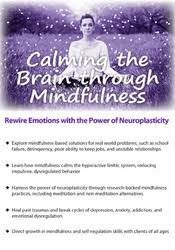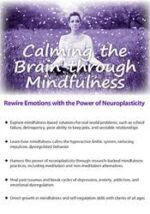Mindfulness practices help penitentiary inmate form an intimate relationship and develop responsible parenting skills
Mark L. Beischel – Calming the Brain through Mindfulness
THE NEUROBIOLOGY OF MINDFULNESS
Our brains are social by nature
The foundation is set during the first year of life
“Relational trauma” according to Schore
The limbic system
Frontal lobe development
The “Executive” control center
Neurotransmitters
DNA telomeres
INVESTIGATING THE SOCIAL/EMOTIONAL BENEFITS OF MINDFULNESS
Evolution of the cortex and survival
Fear and anxiety resolved through relationships including spiritual
Intimacy and the mirror neurons
The development of attunement
Intimacy skills:
Self-awareness
Empathy
Communication of emotions
Conflict resolution
Sustaining commitment
The neurobiology of mindfulness meditation
Emotional benefits of mindfulness
MINDFULNESS AND EMOTIONAL REGULATION
The evolutionary function of fear and anxiety
Fast and slow circuits
Fears and anxieties
Stress and hippocampal damage
Regulating fear
ELICITING THE RELAXATION RESPONSE: RESEARCH OF HERBERT BENSON
Eastern meditation and visualization
Gains through Benson’s method
Genes expressed differently
Anxiety and depression
Cancer
Heart disease
The relaxation response also elicited by:
Physical exercise
Music
Repetitive prayers
Benson’s eight-step program for eliciting the relaxation response
Would you like to receive Mark L. Beischel – Calming the Brain through Mindfulness ?
MINDFULNESS IN MENTAL HEALTH TREATMENT
Mechanisms of action
Focusing on the present
Definition of Shapiro and Kubat-Zinn –self-regulation and self-management
Re-perceiving non-judgmentally
Eight themes of Teasdale, Williams, and Segal
Rogers’ mindfulness exercise
Mindfulness, spirituality, and cultural competence
The therapist’s mindfulness attitudes:
Self-compassion and attunement
Empathy and attunement with others
Emotional regulation
EASTERN AND WESTERN MEDITATION
History of Eastern and Western meditation
The “Desert Fathers”
Evolution of meditation and contemplation
Neuroscience of meditation and contemplation
Maslow’s self-actualizing characteristics and meditation
Attachment theory, meditation and self-actualization
Newberg’s research on the “Centering Prayer” of Keating
MINDFULNESS TRAINING AND INTERVENTIONS FOR
Children and adolescents
Emotional regulation disorders
Chronic depression
Anxiety disorders
Addiction treatment
CASE STUDY
Mindfulness practices help penitentiary inmate form an intimate relationship and develop responsible parenting skills








